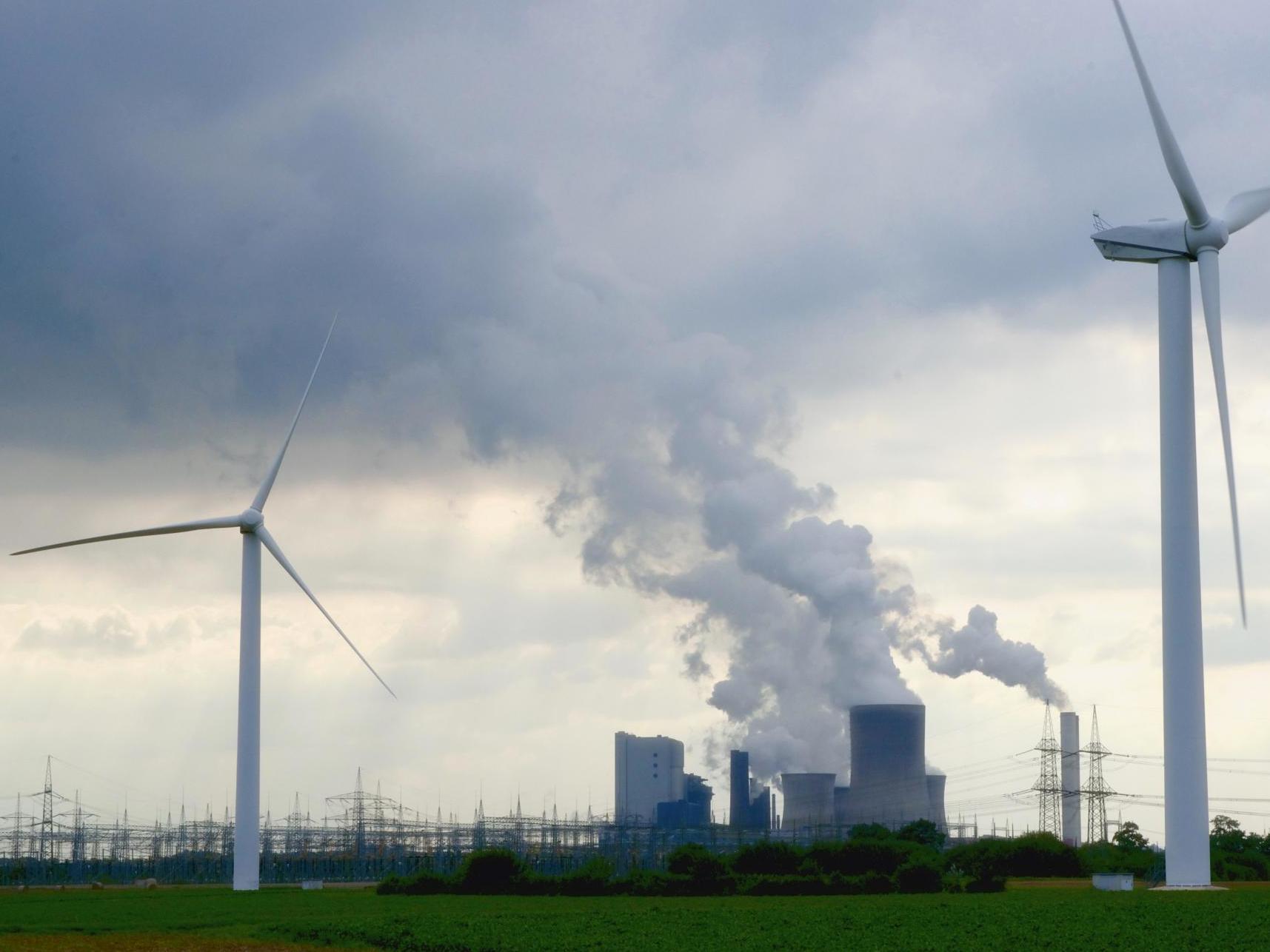Renewable energy replaces coal as Germany’s main power source for first time
Out with the coal and in with the renewables - wind power now Germany's second largest single source of power

Your support helps us to tell the story
From reproductive rights to climate change to Big Tech, The Independent is on the ground when the story is developing. Whether it's investigating the financials of Elon Musk's pro-Trump PAC or producing our latest documentary, 'The A Word', which shines a light on the American women fighting for reproductive rights, we know how important it is to parse out the facts from the messaging.
At such a critical moment in US history, we need reporters on the ground. Your donation allows us to keep sending journalists to speak to both sides of the story.
The Independent is trusted by Americans across the entire political spectrum. And unlike many other quality news outlets, we choose not to lock Americans out of our reporting and analysis with paywalls. We believe quality journalism should be available to everyone, paid for by those who can afford it.
Your support makes all the difference.Renewable sources of energy overtook coal as Germany’s main power source for the first time over 2018, a study suggests.
Solar, wind, biomass and hydroelectric generation rose 4.3 per cent last year to account for 40 per cent of German electricity production in 2018, up from 38.2 per cent in 2017 and 19.1 per cent in 2010.
Over the course of the year, 38 per cent of the country’s power was generated from coal, researchers said.
Solar power generation rose by 16 per cent, wind by 5.4 per cent and biomass by 0.2 per cent.
The study, undertaken by Bruno Burger of the Fraunhofer Institute for Solar Energy Systems, indicates Germany has begun to make inroads into its fossil fuel dependency.
“We will not fall below 40 per cent in 2019 because more renewable installations are being built and weather patterns will not change that dramatically,” he said.
Green power sceptics have said the high renewable power output reflects favourable weather patterns and does not prove the sector’s contribution to secure energy supplies.
But other European countries dependent on coal since the industrial revolution have also begun to see the beginning of the end of its dominance.
In April 2017, the UK went four days without coal contributing to the national grid – the first time coal had not made any contribution since the 1880s.
Over 2017 Britain logged 624 coal-free hours, a rise from 210 hours in 2016. By July in 2018 amid a record-breaking heatwave, more than 1,000 coal-free hours had been logged.
The UK is currently aiming to completely eradicate the use of coal by 2025 and France by 2022. But Germany – home to Europe’s largest open cast coal mine – has extended current mining commitments to 2040, though ministers have said renewables should provide 65 per cent of the country’s energy by 2030.
Germany’s reluctance to end its dependence on coal saw protesters unfurl banners at its embassy in London three months ago after a major UN report called for unprecedented action to tackle climate change.
Coal remains Germany’s largest single source of power, followed closely by wind.
Brown coal power accounted for 24.1 per cent. Imported hard coal contributed 75.7 TWh, or 13.9 per cent of the total.
The wind power industry produced 111 terawatt hours (TWh) from combined onshore and offshore capacity of just under 60 GW, constituting 20.4 per cent of total German power output.
Support free-thinking journalism and subscribe to Independent Minds
Reuters contributed to this report
Join our commenting forum
Join thought-provoking conversations, follow other Independent readers and see their replies
Comments